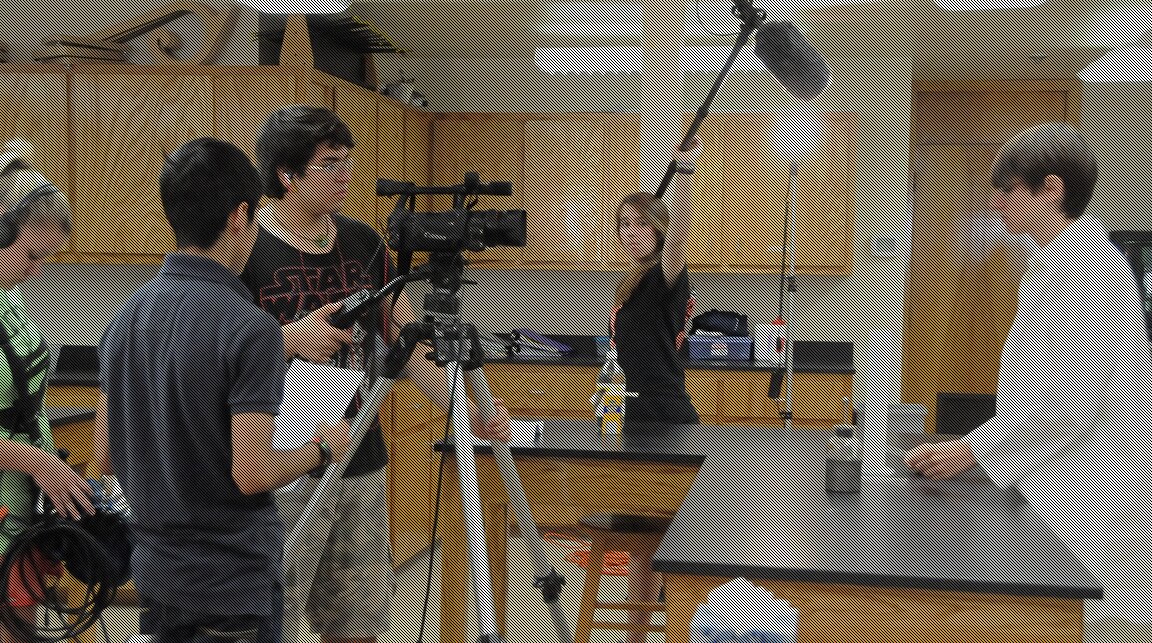Thanks to Katie McDowell for our new videos!
I’ve never learned so much about any craft in such a short amount of time. It’s amazing what I’ve taken away from this experience.
Izzy Custodio (Acting Major 2011)
Age 16 from San Antonio, Texas
AARON CLIFTON MOTEN, Juilliard Graduate/Broadway Actor to Head Acting Program Summer 2014
 Aaron Clifton Moten, Juilliard Graduate, joins the Texas Arts Project Faculty as Head of Acting 2014! Austin born, Aaron is a St. Stephen’s alumnus and is eager to return to his roots for three weeks this summer after having begun his very successful career in NYC. Aaron’s Broadway debut was “A Streetcar Named Desire” with Blair Underwood, Nicole Ari Parker and Daphne Rubin-Vega. He has appeared on TV in “Happyish” (ShowTime), “Criminal Justice” (HBO), and “NCIS” (CBS). Most recently, Aaron originated the role of Avery in the Pulitzer Prize winning play “The Flick.” The Playwrights Horizons Off-Broadway play garnered Aaron a Drama Desk Nomination. The timing just worked out perfectly as he has one month off this summer before he moves on to his next project. We are so very fortunate to have this amazing actor/teacher on our team.
Aaron Clifton Moten, Juilliard Graduate, joins the Texas Arts Project Faculty as Head of Acting 2014! Austin born, Aaron is a St. Stephen’s alumnus and is eager to return to his roots for three weeks this summer after having begun his very successful career in NYC. Aaron’s Broadway debut was “A Streetcar Named Desire” with Blair Underwood, Nicole Ari Parker and Daphne Rubin-Vega. He has appeared on TV in “Happyish” (ShowTime), “Criminal Justice” (HBO), and “NCIS” (CBS). Most recently, Aaron originated the role of Avery in the Pulitzer Prize winning play “The Flick.” The Playwrights Horizons Off-Broadway play garnered Aaron a Drama Desk Nomination. The timing just worked out perfectly as he has one month off this summer before he moves on to his next project. We are so very fortunate to have this amazing actor/teacher on our team.
Philosophy
Acting majors at TAP camp are challenged on a daily basis through rigorous class work and rehearsal methods. As campers come from a variety of schools or programs, the faculty assesses each student, utilizing his or her personal foundation as a starting point ensuring the most potential growth in each individual camper.
Acting majors are divided into two groups based on age, experience and skill level. The campers are immersed in daily classes in the mornings that cover acting, improvisation, voice/movement and more. As TAP camp strives to train the “complete artist,” campers are assigned to classes in voice and dance in the afternoons. Additionally all campers rehearse sections of the final showcase together once daily. In the evenings, acting majors work with a director and a team of assistants as they create original pieces of the showcase and rehearse scenes and monologues from contemporary plays. The acting majors also have the privilege of performing in the student films. Additional film acting classes are instructed so that acting majors are comfortable on camera.
Curriculum
The TAP acting classes are process-oriented emphasizing technique, styles, and methods. Students develop awareness about themselves and their relationship with others and the world around them as actors. Students are introduced to the essential skills of acting from improvisation to character development to text analysis and performance.
Concentration is on the preparation of developing characters through script analysis, preparation and performance. Students will be expected to participate in monologue and scene work so that they may establish short and long term goals for themselves. Emphasis will be placed on taking creative risks and finding truth in performance. In addition to gaining knowledge of the actor’s process, these acting classes help students expand self-awareness, foster self-confidence, and place trust in others.
Course Descriptions
Acting
Focus on text analysis, sensory work, actions and truthful behavior within a scene or monologue. A variety of acting methods will be examined through the study of contemporary plays. Techniques for approaching the craft of acting are explored through exercises, group discussions, scene study, and self-assessments.
Improvisation
Develop techniques of improvisation, which can be used in character exploration. Learn to think on your feet, make bold choices and practice creative collaboration with fellow performers.
Theatre Past and Present
Through lecture and discussion, explore theatre history as it relates to current trends in theatrical performance.
Auditioning
Examine techniques for more effective auditions including presentation, preparation and follow through.
Voice/Movement
Strengthen vocal and physical skills through release of tension, posture, vocal exercises and muscle extension. Examine various techniques for body/voice training to expand your physical and vocal capabilities.
Film Acting
Use scenes from films to explore techniques for acting on camera. As the actors in the student films at TAP Camp, Acting majors participate in a combination of both classroom and hands-on experience.
Specials
Acting Majors have the opportunity to take make-up classes. Beginners take the basics while more advanced students learn old age and scarring methods. Guest artists may be brought in for special topics such as Stage Combat, Shakespeare, Suzuki, Viewpoints, etc.
Rehearsals
Rehearsals are conducted in the evenings. During the first week, campers read scenes and monologues and take classes in film acting to prepare for film shoots during week two. The Director of Acting chooses monologues and scenes for the acting majors and rehearsals begin during week two. Rehearsals are divided into time slots so that each scene or monologue is individually coached multiple times over the course of a week. On the third week of camp, we assemble the showcase combining majors and creating a cohesive showcase. Acting majors may have the opportunity to perform in dances or songs as well.
Showcase
In the past, acting majors have engaged in writing workshops, creating original pieces for the showcase based on the theme. Scenes and monologues have been performed from many contemporary playwrights, including Tony Kushner, Steven Dietz, Larry Shue, Margaret Edson, Kenneth Lonergan, Neil Simon and Lee Blessing.




